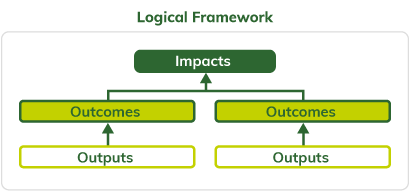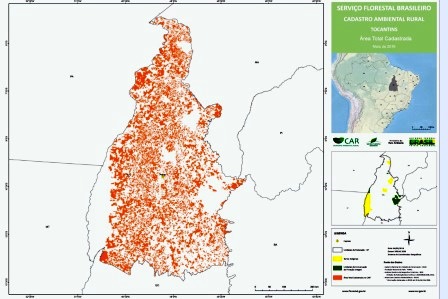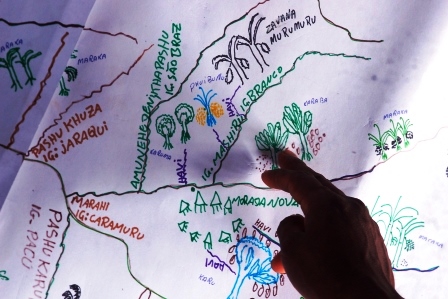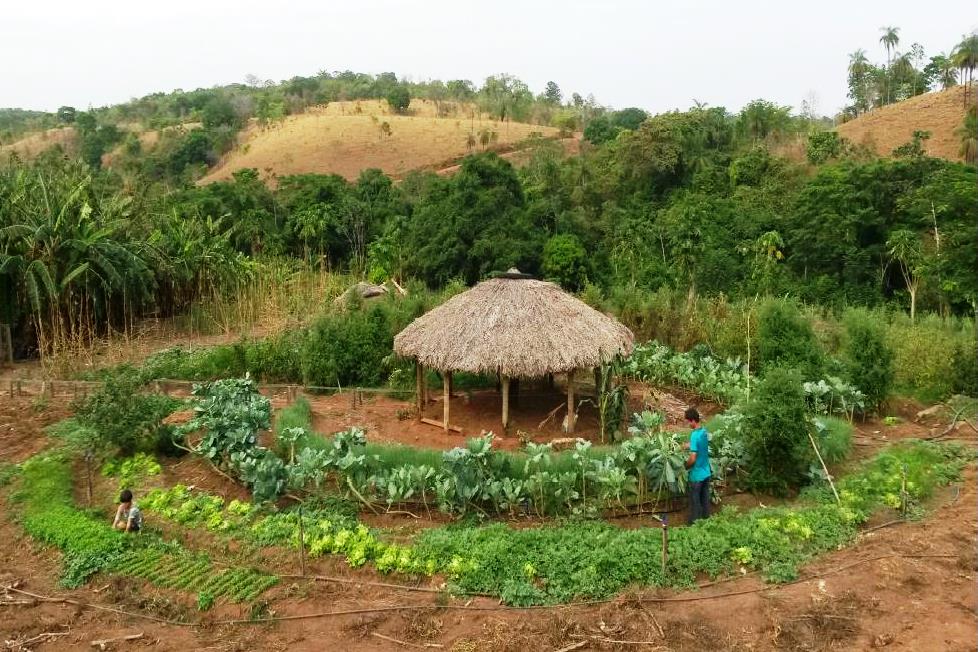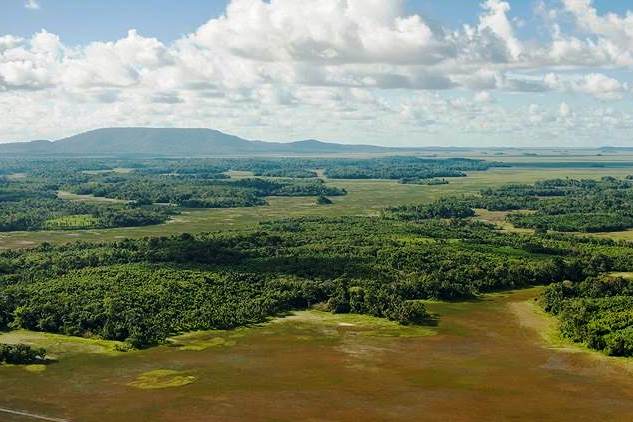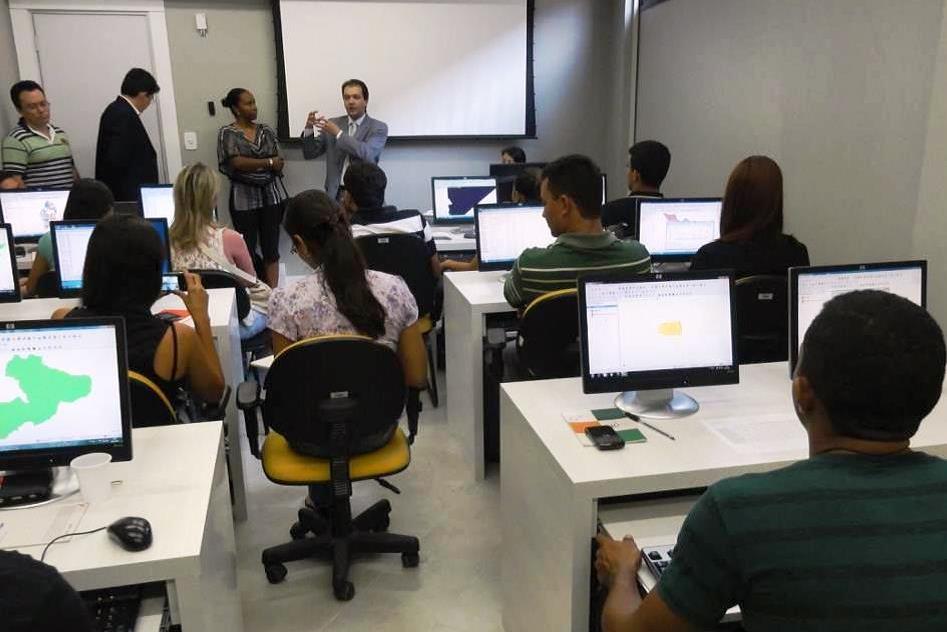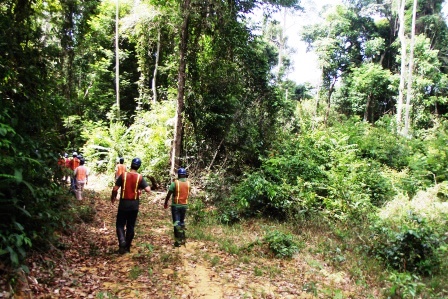CONTEXT
The Rural Environmental Registry (CAR) consists of the electronic register of geo-referenced spatial information of rural properties, with delimitation of Permanent Preservation Areas (APP), Legal Reserve (RL), remnants of native vegetation, consolidated rural area and areas of social interest and public utility, in order to draw a digital map from which the values of the areas for environmental diagnosis are calculated.
With the promulgation of the new Forest Code (Law nº 12.651 / 2012), the CAR was established as an electronic public registry of national scope, mandatory for all rural properties, with the purpose of integrating the environmental information of rural properties and land possessions, composing a database for environmental and economic control, monitoring and planning and combating deforestation. In addition, Decrees nº 7.830 / 2012 and 8.235 / 2014 established general and complementary norms, respectively, that must be observed by the states in the implementation of the cadastre.
In this context, the BNDES, through the Amazon Fund, plays an important role in supporting projects for CAR implementation, and the Amazon Fund Steering Committee (COFA) has maintained this theme as one of the priority focus of action for 2017 and 2018.
THE PROJECT
The project aims to register 100% of the rural properties with up to four tax modules located in the 217 municipalities of the state of Maranhão, with support from the Amazon Fund for the registration of 182,500 properties in this category. The project also includes support for registration in traditional communities that make collective use of their territory, with emphasis on quilombola communities, with a significant presence in the state, as well as settlements, agrarian reform projects and conservation units.
Secretariat for Family Agriculture (SAF) will use the structure of the 19 regional units of the Agency for Technical Assistance and Rural Extension (AGERP) and will have the direct collaboration of professionals from that organization. It will also have the support of Institute of Colonization and Lands of Maranhão (ITERMA) professionals, in relation to properties located in state settlements. SAF's strategy includes the grouping of municipalities into eight lots, with 12 mobilization and sensitization meetings per lots, with an expected average audience of 50 participants per meeting, mainly leaders or representatives of local organizations with the potential to replicate information in their communities.
For the execution of the planned activities, the acquisition of computer and furniture equipment for the SAF teams and the AGERP offices allocated to the project will be supported, as well as vehicles for the field monitoring activities to be performed by servants of the secretary and of AGERP. Also, as part of the institutional strengthening, training courses will be held for SAF, AGERP and ITERMA servants who will work on the project.
INTERVENTION LOGIC
This project falls under the “Component Monitoring and control" (2) component of the logical framework of the Amazon Fund.
Click on the following image to view its objectives tree, that is, how the project's outputs and linked to the expected outcomes and impact.
